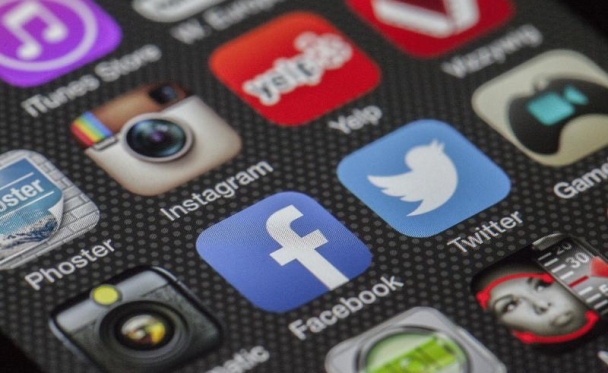DR. RICHARD T. ARNDT HONORED BY FULBRIGHT ALUMNI FOR LIFETIME
ACHIEVEMENTS
 Image: Dr. Arndt speaking in the Hall of in the Hall of the American States at the Fulbright Alumni Lifetime Achievement Award ceremony
Image: Dr. Arndt speaking in the Hall of in the Hall of the American States at the Fulbright Alumni Lifetime Achievement Award ceremony
On November 11, lost in the post-election news glut, the
US Fulbright Association bestowed on our colleague and friend Dick Arndt, aka Richard T., its rarely given Lifetime Achievement Award. The ceremony took place in the stately Great Hall of the Organization of America.
Ambassador Thomas Pickering made the presentation. This year marks the 70
th anniversary of the Fulbright Act, which launched the global exchange of graduate students which today numbers as many as 400,000 alumni world-wide.
The Lifetime Award was created in 2000 to reward significant service to the Fulbright Program. Given at first to two-three alumni or friends biannually, it has become an annual event and is now given to an individual. Among the 18 former laureates can be found the great African-American historian of slavery John Hope Franklin, statesman-diplomat Pickering, Metropolitan Opera soprano Renee Fleming, and actor John Lithgow, all Fulbright alumni.
Arndt sailed in the Fulbright ship carrying the first contingent of 270 US graduate students to study in French universities (1949); he returned to teach and earn his doctorate in 18
th-century French literature at Columbia (1959). In 1961, he joined Ed Murrow’s
USIA, was assigned to the cultural office of USIS (United States Information Service) Beirut, then moved Ceylon-Sri Lanka as Cultural Affairs Officer (1963). In 1966 he had five-year tour in Tehran (1966-71) where, as he says, his greatest achievement lay in discovering and training
Lois Roth (they married in 1973). USIA gave him Meritorious Service Awards for these first three assignments.
A mid-career assignment to Princeton’s Wilson School helped fill gaps in his mastery of the social sciences (economics and statistics), while he refreshed his classroom skills by voluntarily teaching French. Back in Washington, he went to State Department/CU (today’s
Bureau of Cultural and Educational Affairs - ECA) as a stopgap deputy area director for Latin America, then moved to direct the Office of US Specialists, Foreign Students and Youth Affairs. He and Lois then did tandem-duty in Rome and Paris (1974-80) before returning to the USIA of the late John Reinhardt and Charles Z. Wick. He retired in October 1985, only three months before the death of Lois Roth, by then an iconic figure among USIA’s second-generation pioneer women.
In her memory, he founded and chaired the
Lois Roth Endowment which today works with two dozen partners. The Endowment gives three prizes annually to State/ECA-nominees for excellence in cultural diplomacy; awards support grants to US and foreign students nominated by selected Fulbright Commissions around the world; helps fund, as founder-donor with the UK Commission and FA, the annual Fulbright Legacy Lectures at Pembroke College, Oxford, Kings University London, and the University of Edinburgh; and awards four annual prizes for excellence in English translation from European and non-European languages including Persian. The Endowment’s general mission is to deepen and extend Fulbright Program activities.
After Lois’ death, he returned to the academic world and spent almost four years as diplomat-in-residence at the University of Virginia, Charlottesville. He and Lois were founding members of the Fulbright Association (1976); in 1986 he joined the FA board and was elected Vice-President then President in 1989; he was principal editor of
The Fulbright Difference, 1948-92 (Transaction). In 1990 he began teaching a course in Cultural Diplomacy, while sharing an office with the late
Walter Roberts. In parallel he worked with the National Peace Foundation, the Cleveland International Program, the US Committee to Save Ancient Tyre, and
Americans for UNESCO (AU), supporting US leadership in that neglected multilateral organization. As AU president, he stabilized AU’s Washington office, first in the
Institute for International Education (IIE) then on the campus of the George Washington University, where he initiated the yearly course on UNESCO in World Affairs which continues today. His comprehensive book
The First Resort of Kings: American Cultural Diplomacy in the Twentieth Century (Potomac, now University of Nebraska) appeared in 2005 and has become the standard reference on the subject.
Since 2012, he has served as a consultant to FA; he chaired the give-continent selection committee for the biannual Fulbright International Prize for Mutual Understanding (in 1990, he had initiated and guided he process which led to the creation of this award, bearing an honorarium of $50,000). Since 2015 he has played a quiet but persistent role in warning Americans that the erosion of the Fulbright Program over seven decades has weakened it to the point where it could disappear overnight, stressing the damage that would be done to American and foreign universities and to tens of thousands of future US and foreign graduate students, researchers and post-doctoral scholars committed to enriching the life of all nations.
In his acceptance remarks at FA dinner, Arndt said he had never been so honored. He thanked those, including Lois, who had helped in everything he had been able to do. In closing, he warned the 400 attendees that they were seriously mistaken if they imagined his lifetime was over or that his achievements had ended. As he said, “I have other plans.”

 Pablo Barberá joined the School of International Relations at USC as an Assistant Professor in 2016, after receiving his PhD in political science from New York University and spending a year as a Post-Doctoral Fellow at the Center for Data Science in New York University. His research interests include computational methods in the social sciences, automated text analysis, and social network analysis. He applies these methods to the study of social media and politics, comparative electoral behavior and collective action, and political representation.
Pablo Barberá joined the School of International Relations at USC as an Assistant Professor in 2016, after receiving his PhD in political science from New York University and spending a year as a Post-Doctoral Fellow at the Center for Data Science in New York University. His research interests include computational methods in the social sciences, automated text analysis, and social network analysis. He applies these methods to the study of social media and politics, comparative electoral behavior and collective action, and political representation. Pablo Barberá joined the School of International Relations at USC as an Assistant Professor in 2016, after receiving his PhD in political science from New York University and spending a year as a Post-Doctoral Fellow at the Center for Data Science in New York University. His research interests include computational methods in the social sciences, automated text analysis, and social network analysis. He applies these methods to the study of social media and politics, comparative electoral behavior and collective action, and political representation.
Pablo Barberá joined the School of International Relations at USC as an Assistant Professor in 2016, after receiving his PhD in political science from New York University and spending a year as a Post-Doctoral Fellow at the Center for Data Science in New York University. His research interests include computational methods in the social sciences, automated text analysis, and social network analysis. He applies these methods to the study of social media and politics, comparative electoral behavior and collective action, and political representation.



